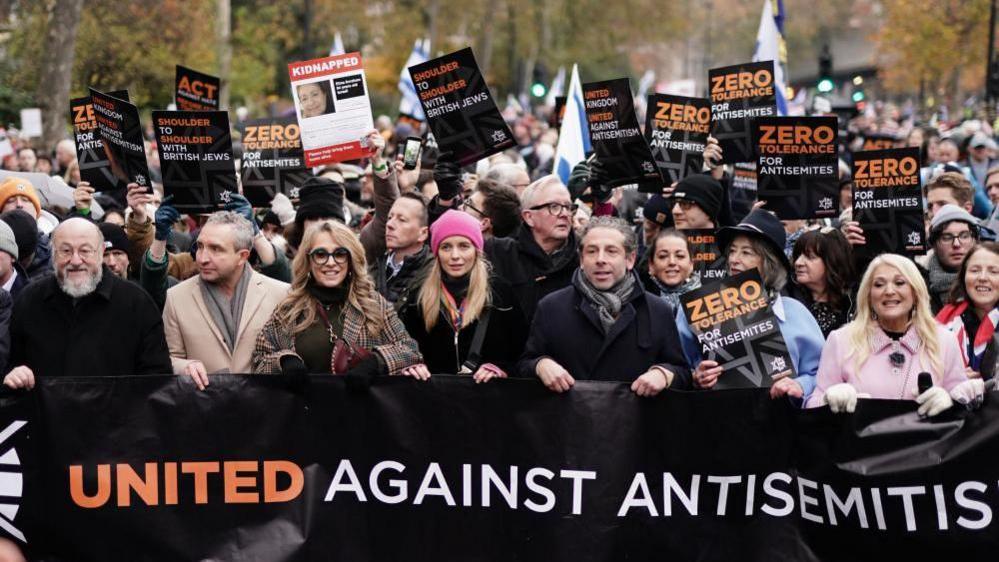'I've had milkshake thrown at my car and my flat egged'
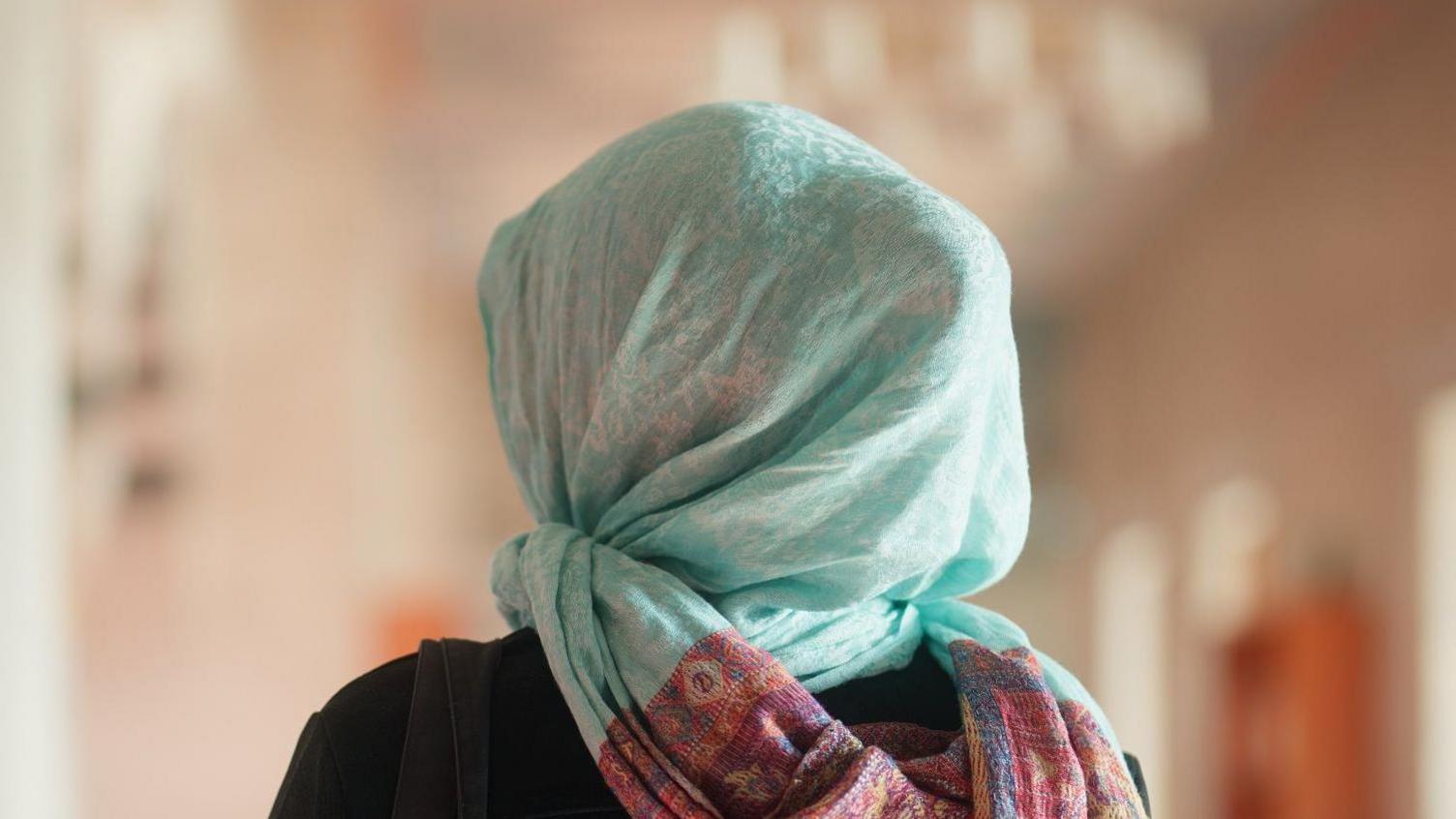
One woman, who asked not to be identified, said her son had faced discrimination at school
- Published
After a ceasefire was agreed between Israel and Hamas over the conflict in Gaza, two women - one Muslim and the other Jewish - have spoken out about the discrimination they have faced since the October 7 attacks, and their hopes for the future now a deal has been approved.
"I've found dog poo and milkshake thrown on my car. I've had my flat egged."
These are the words of a Muslim woman who said Gloucester is the only city where she doesn't wear her headscarf due to abuse.
Her son has also experienced incidents at school.
He was told by another child: "Don't sit next to me. You're a Muslim. I don't want to sit next to you."
Abigail Fisher, the Associate Jewish Chaplain at the University of Gloucestershire, said antisemitic incidents had also been on the rise.
"I had something said to me at a social gathering and it knocked me for six," she said. "It was totally out of the blue."
Her role involves supporting Jewish students, some of whom have also experienced anti-Semitism.
'Really upsetting'
Miss Fisher said: "Over this last 15 months, there have been pockets where it's been really upsetting. There have been things that have happened that have been really unpleasant for members of our community.
"Their voices, certainly in Gloucestershire, are very small.
"They don't want to put their heads above the parapet - why would they? To raise your head when you're a small minority is a big thing. "
Miss Fisher is also the secretary of Cheltenham's Hebrew Congregation and said the town's synagogue had received hate mail.
She said: "(It is) mainly emails, and we have a website for the synagogue and that's had a lot of very unpleasant things sent to it."
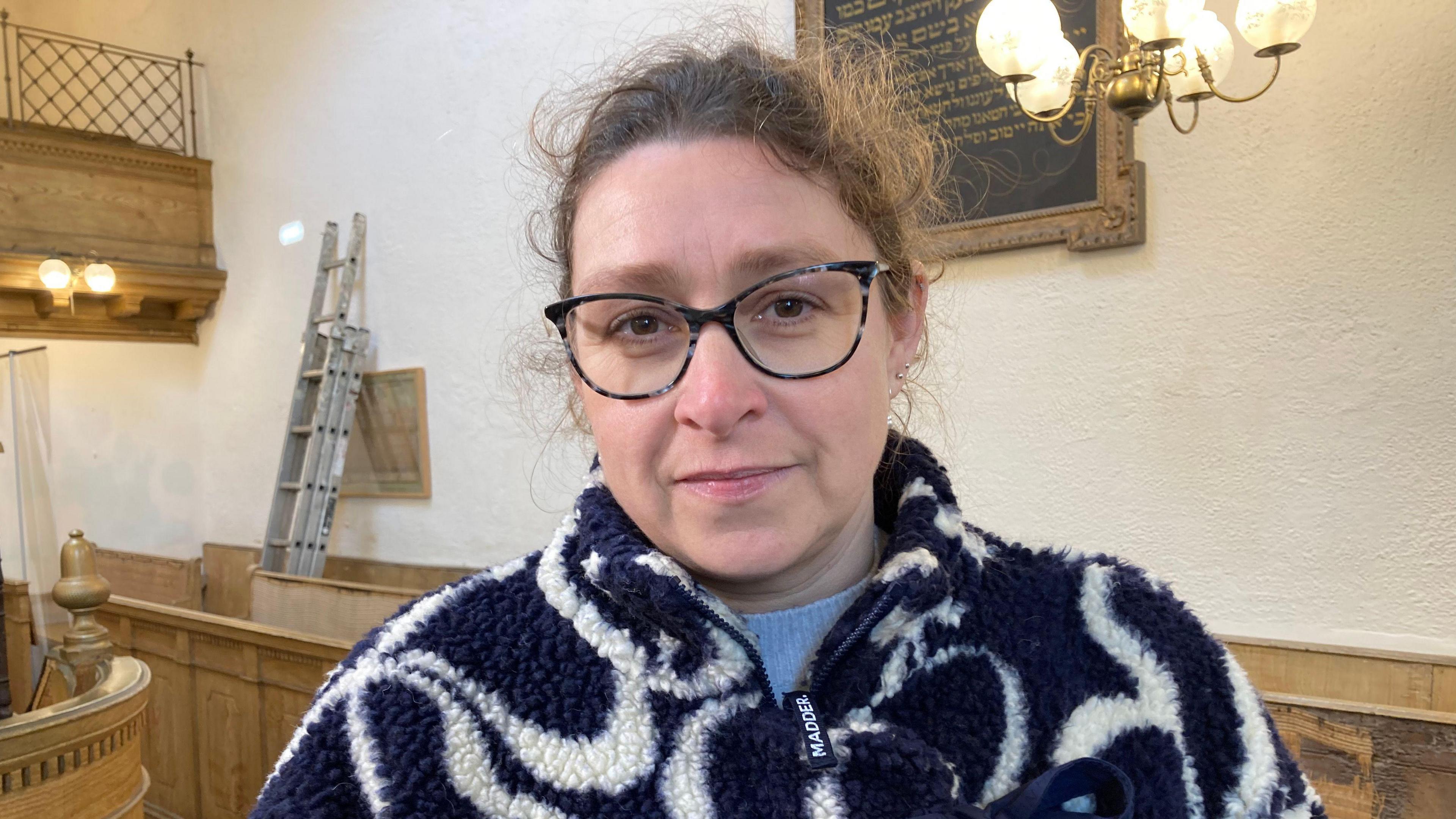
Abigail Fisher said there had been "really upsetting" comments made
The Muslim woman who spoke to the BBC has had her car routinely vandalised.
She said: "Somebody used to pour milkshake over my car, the windscreen, and obviously it's winter (so) that frosts in. It's a nightmare to take that off."
On one occasion, she reported her wing mirrors being broken off to police, but was only given a crime reference number.
The majority of people the BBC spoke to about this rise in abuse said they had not reported incidents to the police, so the full scale of the problem may not be known.
A charity reported in August 2024 that antisemitism had more than doubled in the UK in the first half of 2024 compared to the first half of the previous year.
When the war in Gaza escalated, Miss Fisher said she anticipated anti-Semitism would increase in the UK.
She said: "I think I was expecting it, part of me was expecting it. I don't think I was surprised. Disgusted? Absolutely. Surprised? You grow up knowing that some things happen because you're a Jew. You don't like it, it's not nice, but these things do happen. But this time around has been really quite unpleasant."
'I don't wear my headscarf'
The Muslim woman said she now removed her headscarf, which she wears for religious reasons, when she was on the streets.
She said: "Gloucester is the only city I don't wear my headscarf. Anywhere I go, even if I go on holiday, I wear my headscarf - but being in Gloucester, because of the experiences I've had, it's kind of deterred me.
"When I go to see my family in Birmingham and Bristol, as soon as I go into my car, I wear my scarf proudly, go onto that motorway and I feel nothing, I feel no resistance, I feel good about it.
"I'm walking in Bristol city centre and I don't feel like I'm being judged or looked at and maybe that's because it's a bigger city, more diverse, I get that."
She said it was mainly youths who shouted out abuse to her and it was a mixture of boys and girls doing it.
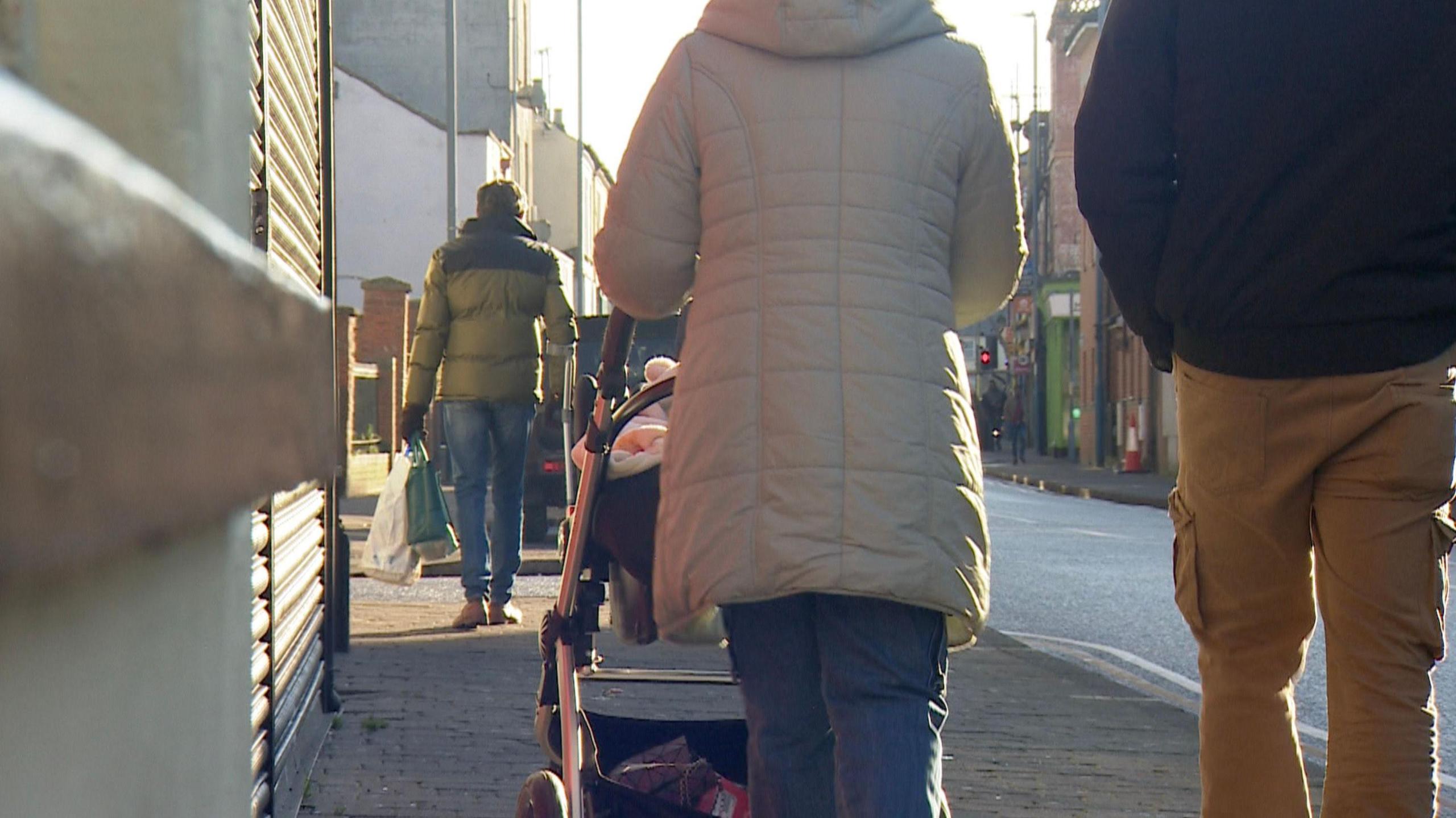
The woman who spoke to the BBC described a number of Islamophobic incidents
She believes they target Muslim women, who wear traditional Islamic dress, much more so than Muslim men.
Speaking about her husband, she said: "He's a tall black guy. What would they do to him? All they see is a black guy whereas me, I'm the one wearing the headscarf."
Miss Fisher said she believed the increase in antisemitism in the UK was directly linked to the conflict in Gaza.
She said: "[It] is because of something that's happening quite a long way away."
Miss Fisher also believes some people in Britain assume all Jews have the same views on the situation in the Middle East, which is not the case.
Miss Fisher said: "I have no control over what is happening but that doesn't mean that things that are being said about my religion are pleasant.
"And it's really horrible what has happened over the last few months."
She is hopeful that the ceasefire in Gaza, which began on 19 January, will hold and will lead to a reduction in the abusive incidents happening in Gloucestershire.
She said: "I don't think they will ever go away, but maybe there will be a decline."
Get in touch
Tell us which stories we should cover in Gloucestershire
Follow BBC Gloucestershire on Facebook, external, X, external and Instagram, external. Send your story ideas to us on email or via WhatsApp on 0800 313 4630.
Related topics
- Published30 December 2024
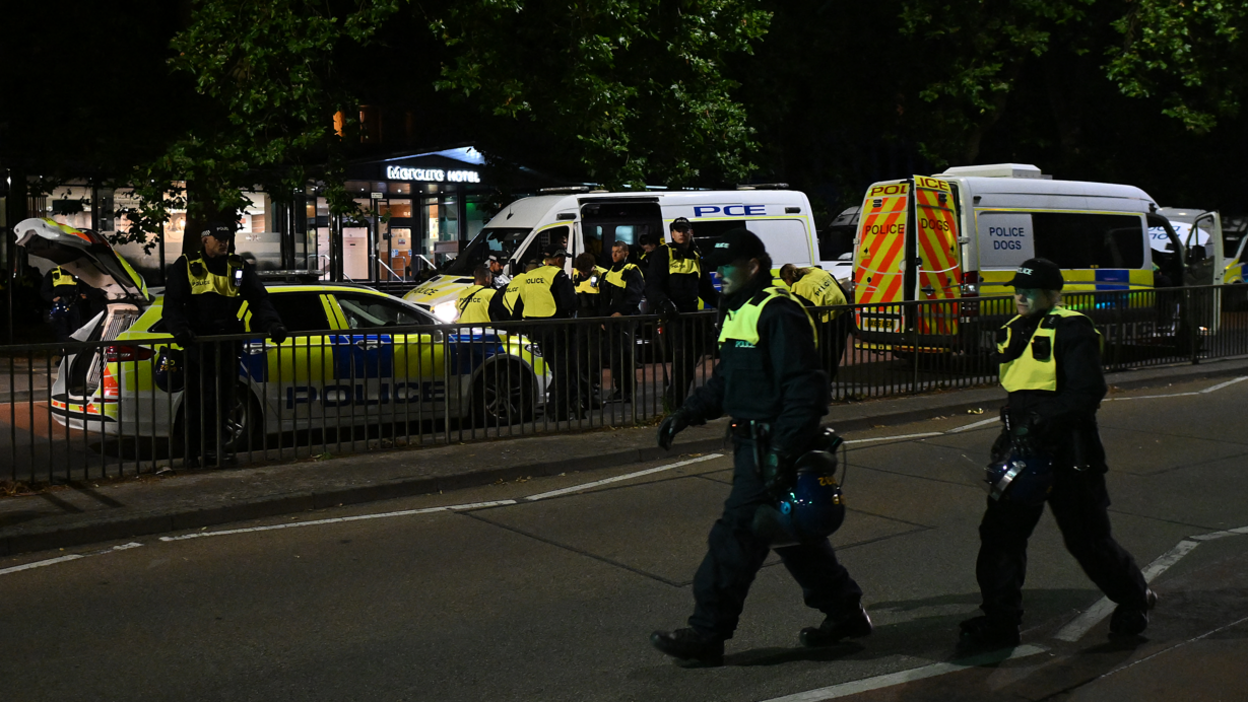
- Published10 October 2024
